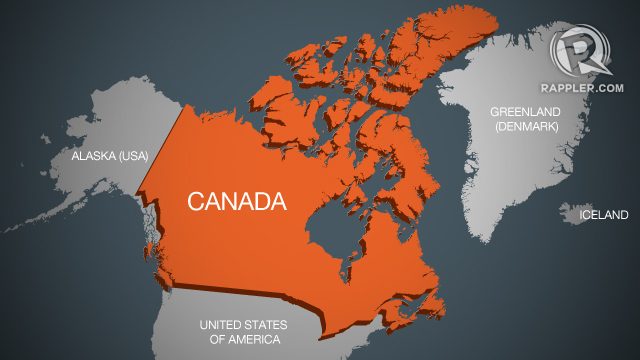SUMMARY
This is AI generated summarization, which may have errors. For context, always refer to the full article.

MONTREAL, Canada – A small Inuit village in the Canadian Arctic on Monday sued to block offshore exploration for oil, involving noisy air-cannon surveys it says threaten marine wildlife.
Oil prospecting ships are soon due to arrive on the Clyde River, located on the east coast of Baffin Island and 2,000 kilometers (1,200 miles) from the North Pole, after Canada’s National Energy Board gave the green light in June.
During prior public consultations, the Inuit voiced concern over the environmental dangers posed by surveys conducted with compressed air cannons and, eventually, by the possible extraction of oil itself.
It “violates the fundamental rights of the people of Nunavut,” the autonomous Inuit territory of northern Canada, said Nader Hasan, a lawyer representing Clyde River, in a statement.
“Given that the seismic surveys are little regulated and could have catastrophic consequences for the Inuit communities, the village of Clyde River … has asked the federal appeals court to review the Energy Board’s decision,” he said.
The federal Energy Board acknowledged last year that the noisy air-cannon testing — aimed at mapping the ocean floor — could affect bowhead whales.
However, that wasn’t enough to block the request for surveying by three oil companies, TGS-NOPEC Geophysical Company ASA (TGS), Petroleum GeoServices (PGS) and Multi Klient Invest AS (MKI).
The waters highly coveted by oil companies are rich in narwhals, bowhead whales, walruses, seals and other marine mammals, which “are the base of Inuit food and culture,” the indigenous group wrote, arguing the seismic surveys “could be fatal,” in particular through “disturbing the migration paths” of the animals.
The Arctic contains 22% of the world’s undiscovered oil reserves, according to US estimates from 2008. But the promise of oil under receding sea ice has been slow to materialize: Norwegian oil giant Statoil has abandoned two wells in northern Canada since June, saying they weren’t commercially viable. – Rappler.com
Add a comment
How does this make you feel?
There are no comments yet. Add your comment to start the conversation.